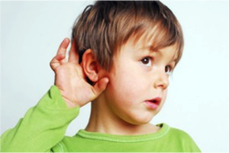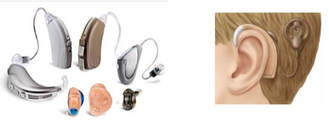 Hearing Loss Causes Communication Breakdown At any age hearing loss negatively effects communication. During early childhood hearing loss, if not picked up, can delay children’s speech and language development significantly. Often poor speech clarity or language development is the first thing parents will notice. However if parents and others around young children can watch for the following milestones they may pick up a hearing problem early and be able to act quickly. Expected Milestones for babies 3 months
6 months
9 months
12 months
18 months
24 months
If you notice any of these milestones are not being met see your doctor and get your child’s ears tested. In older children it is more difficult to identify hearing loss because their speech skills are already developed. Nevertheless, these guidelines may help detect a possible hearing loss. The child:
You just have a feeling, but you can't put your finger on what your concern is. Don't let that stop you. Ask your doctor for a referral to ease your mind. Hearing loss can occur throughout adulthood with one in two adults over 65 years experiencing hearing loss, particularly with higher pitched sounds. Hearing loss causes frustration and communication problems regardless of age. If you think someone is deaf around you ensure they get their hearing checked regularly, there is likely to be a solution to either solve or reduce the impact of their hearing loss. Some guidelines on speaking to someone who’s deaf
Therapy Professionals Ltd Phone No: (03) 377 5280 Email: [email protected] Website: www.therapyprofessionals.co.nz Comments are closed.
|
AuthorShonagh O'Hagan Archives
July 2024
|


 RSS Feed
RSS Feed